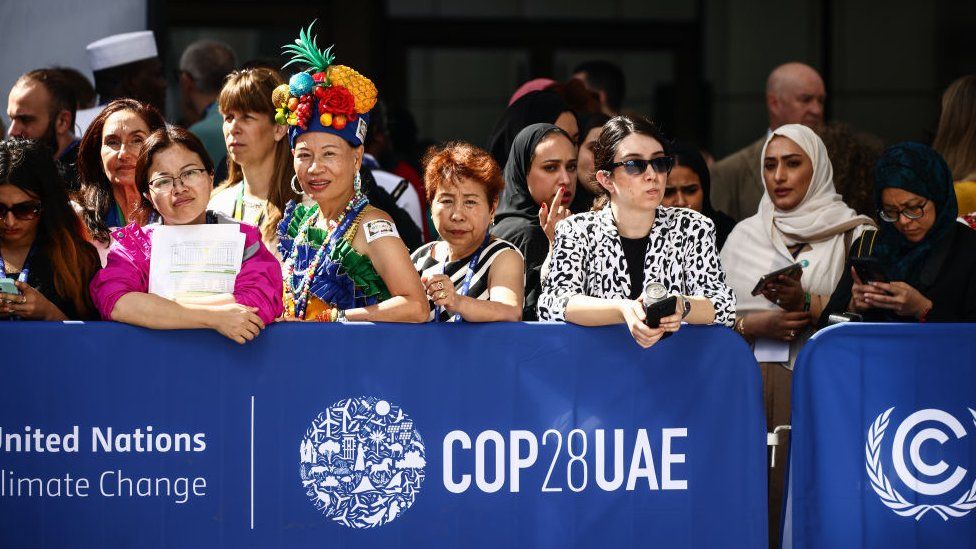-

-
-
Loading

Loading

At the UN climate talks, countries and oil companies have made a significant commitment to combat global warming through a new energy pledge. Saudi Arabia's Aramco, along with 50 other oil and gas companies, has promised to stop contributing to planet-warming gases by 2050. Additionally, approximately 100 countries have pledged to triple the world's renewable energy usage by 2030. However, critics argue that these promises are not binding, and there are no penalties for failing to meet the targets. These commitments focus solely on the emissions produced by oil and gas companies during drilling and processing, rather than the burning of oil and gas that produces electricity or powers vehicles. Moreover, the pledge allows companies to temporarily increase oil and gas production as long as it is reduced by 2050. Since burning large quantities of fossil fuels is the main driver of climate change, world leaders are still divided on the speed at which the world should transition away from them. The United Arab Emirates (UAE) believes that its Decarbonisation Charter will accelerate climate action, as it includes oil and gas companies responsible for 40% of global emissions committing to achieve net-zero emissions by 2050. Net-zero means that greenhouse gas emissions would no longer be added to the atmosphere. These 50 companies, which also include the UAE's state oil company, have also pledged to significantly reduce the release of methane, a potent planet-heating gas, during oil and gas production by 2030. The International Energy Agency has previously warned that if the world continues to extract more oil and gas, it will fail to meet its climate goals, including limiting the rise in temperature to 1.5 degrees Celsius. While many applaud the push for renewable energy, others argue that it is only half the solution. They contend that the pledge cannot be used to greenwash countries simultaneously expanding their fossil fuel production. Criticism has been directed at the UAE's presidency of the COP28 talks since the country is among the top 10 oil and gas producers globally, and the president of the summit, Sultan al-Jaber, also leads the Abu Dhabi National Oil Company. The COP28 talks have attracted increased participation from world leaders on its third day. Pope Francis, unable to attend due to illness, emphasized the need for an ecological transition that embraces renewable energy, eliminates fossil fuels, and promotes lifestyles with reduced dependence on them.